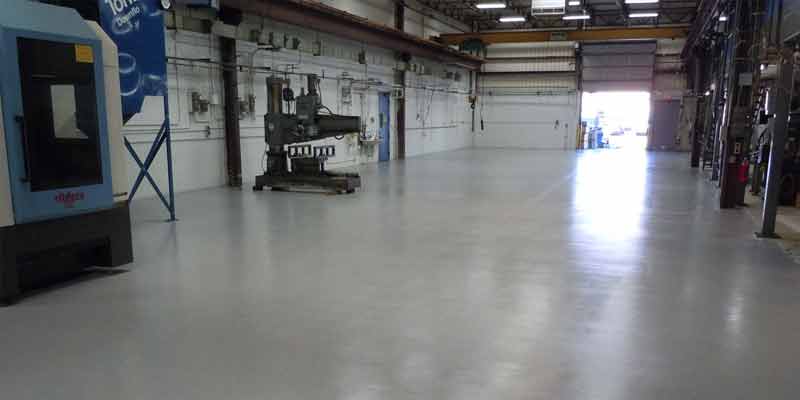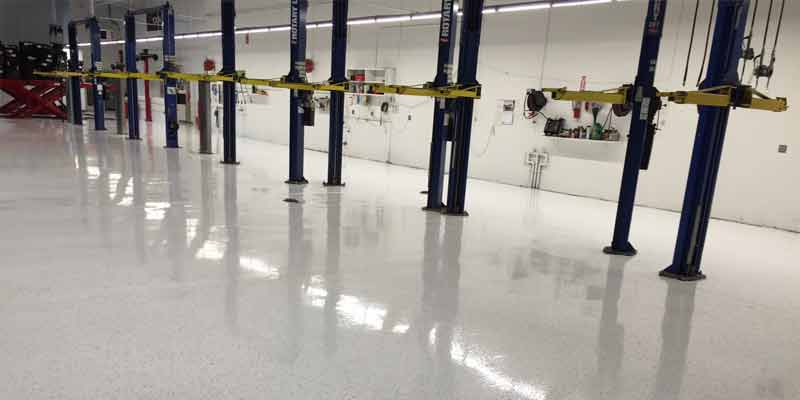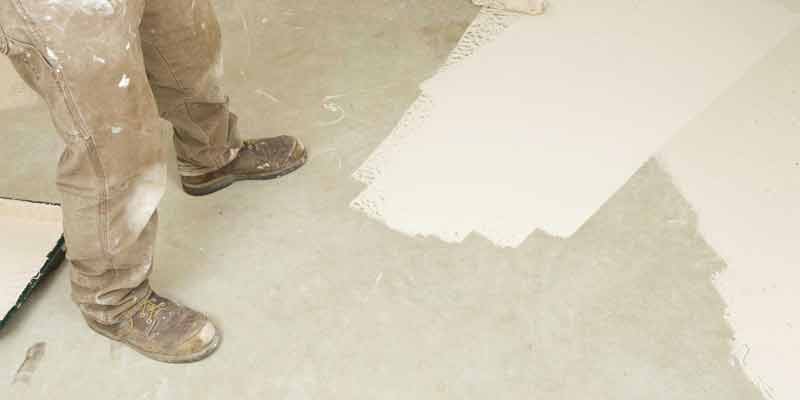Table of Contents
Do I Need? Learn the Facts

While epoxy is often thought of as a one-size-fits-all solution for flooring, different thickness levels are available, each with its own benefits. So, how do you know which epoxy floor thickness is right for your needs? Keep reading to learn the facts.
What Exactly Is An Epoxy Floor?

An epoxy floor is a type of flooring consisting of multiple epoxy resin layers. Epoxy is a strong, durable, and moisture-resistant material that can be applied to concrete floors in order to create a protective barrier.
Epoxy floors are often used in commercial and industrial settings where there is a need for a strong and durable floor that can withstand heavy traffic and equipment. However, epoxy floors can also be used in residential settings.
The Different Types Of Epoxy Flooring

There are three main types of epoxy flooring: thin-mil epoxy, self-leveling epoxy, and decorative flakes.
Thin-mil epoxy is the thinnest type of epoxy flooring, typically measuring between 1-2 mils (1/1000 of an inch). This type of epoxy is often used as a primer for other types of flooring or as a topcoat for existing floors.
Self-leveling epoxy is a thicker type of epoxy, typically measuring between 2-4 mils. As the name suggests, self-leveling epoxy is able to level itself out, creating a smooth and level surface. This type of epoxy is often used in commercial and industrial settings where there is a need for a durable and long-lasting floor.
Decorative flakes are another type of epoxy flooring, which differ from the other two types in that they are not clear. Decorative flakes are made up of small pieces of colored vinyl or plastic that are suspended in a clear epoxy base. This type of flooring is often used in residential settings to add a bit of personality and style to the floor.
The Different Thicknesses Of Epoxy Flooring
There are three main thickness levels for epoxy floors: thin-mil, thick-mil, and self-leveling.
Thin-mil epoxy is the thinnest type of epoxy flooring, typically measuring between 1-2 mils (1/1000 of an inch). This type of epoxy is often used as a primer for other types of flooring or as a topcoat for existing floors.
Thick-mil epoxy is a thicker type of epoxy, typically measuring between 2-4 mils. This type of epoxy is often used in commercial and industrial settings where there is a need for a durable and long-lasting floor.
Self-leveling epoxy is the thickest type of epoxy flooring, typically measuring between 4-6 mils. As the name suggests, self-leveling epoxy is able to level itself out, creating a smooth and level surface. This type of epoxy is often used in commercial and industrial settings where there is a need for a durable and long-lasting floor.
How To Choose The Right Epoxy Floor Thickness
Now that you know the different types and thicknesses of epoxy floors, how do you know which one is right for your needs? The answer depends on a few factors, such as the type of floor you have, the amount of traffic your floor will see, and your budget.
If you have a concrete floor that is in good condition, a thin-mil epoxy may be all you need. Thin-mil epoxy is typically less expensive than other types of epoxy and can be used as a primer for other types of flooring or as a topcoat for existing floors.
If you have a concrete floor that needs repair or expect heavy traffic on your floor, a thick-mil or self-leveling epoxy may be a better option. Thick-mil and self-leveling epoxies are more durable and long-lasting than thin-mil epoxy, making them a good choice for floors that will see a lot of wear and tear.
No matter what type of floor you have, an epoxy flooring option is right for you. Be sure to do your research and ask questions so you can choose the best epoxy flooring for your needs.
Professional Epoxy Installation vs. Do-It-Yourself
Now that you know the different types and thicknesses of epoxy floors, it’s time to choose the right one for your needs. But what about installation? Should you hire a professional or try to do it yourself?
The answer depends on a few factors, such as your budget, skills, and floor type you have. If you have a concrete floor that is in good condition, you may be able to install a thin-mil epoxy yourself. However, if you have a concrete floor that needs repair or expects heavy traffic on your floor, it’s best to hire a professional.
The Bottom Line
Epoxy floors are a great way to protect your floors and add a bit of personality to your home or business. Be sure to do your research and ask questions so you can choose the best epoxy flooring for your needs. And when it comes to installation, it’s best to leave it to the professionals.
